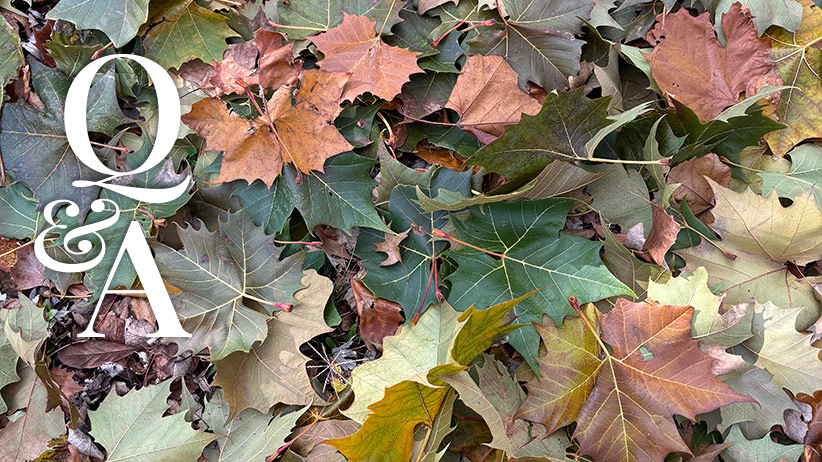Do I Really Need to Rake Up All My Leaves in Fall?
In annual flowerbeds and vegetable gardens, there’s no need to remove fallen leaves — they can actually provide excellent benefits when left where they fall. As the leaves decompose, they enhance the soil structure, improve moisture retention and gradually release nutrients that plants can use in the growing season. To make the most of these benefits, you can leave fallen leaves where they fall all winter and work the leaves into the soil or add them to your compost pile in spring, where they will continue to break down and enrich the compost.
Leaves make great mulch
Decaying leaves serve other purposes too. They create a layer of natural insulation that helps protect the soil and plant roots from extreme cold, and when used as mulch, they can keep weeds from sprouting. Just remember, a couple of inches of leaf mulch will do the trick! Adding too thick of a layer can hinder the leaf material from breaking down properly.
Fallen leaves provide wildlife habitat
Plus they provide a cozy winter habitat for insects and beneficial microorganisms. Want to read more about how to protect your garden's wildlife in fall? Check out this article from the Xerces Society.
You may need to rake leaves in some areas
However, when it comes to perennial beds or grassy areas, a thick layer of wet leaves can actually be problematic. Excessive leaf cover can trap moisture and limit airflow to the grass, leading to issues like rot, mold and fungal growth. This can also damage perennial crowns that are sensitive to being wet over winter and cause problems in spring as plants try to emerge through a soggy, heavy mat of foliage. To avoid these problems, consider raking up the heaviest patches of leaves in these areas or mulching the leaves with your mower. Chopped-up leaves are less likely to smother the lawn or perennials, break down more quickly, are easier to move around and still host insects and wildlife in winter (although leaving them undisturbed is the first choice if providing habitat is your number one goal).
In residential neighborhoods, there’s another factor to consider: your neighbors. As a courtesy, raking up leaves that are likely to blow onto other properties can be a thoughtful way to keep your neighbors happy.
Original question submitted by Bill Newberry, CT
You Might Also Like:
Native Bees Overwinter in Unexpected Places
What's Your Raking Personality?
Leaf Mulch Tip
Send Us Your Garden Questions!
















